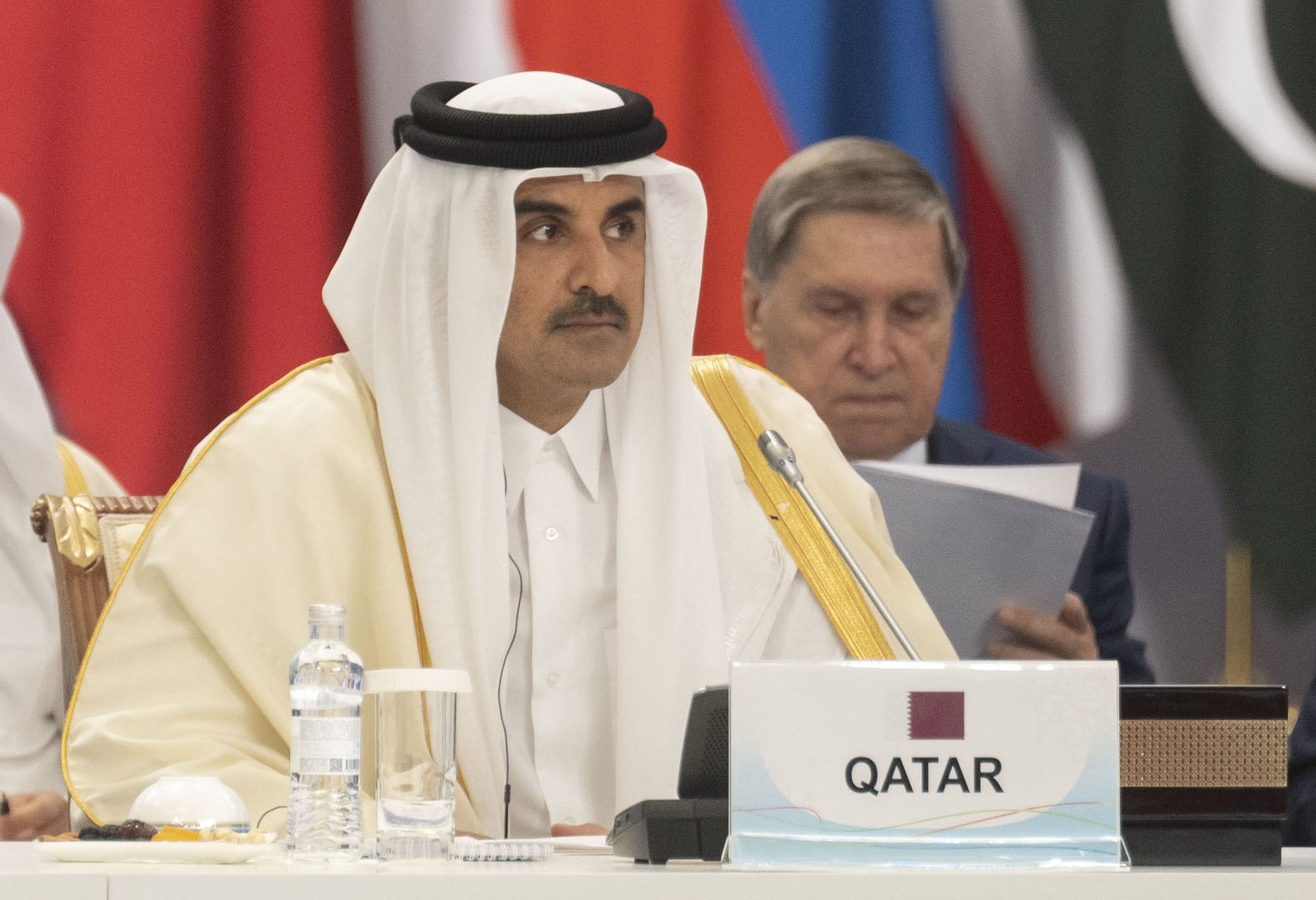The leader was also praised for hosting what has been described as “the best” version of the World Cup.
Qatar’s Amir Sheikh Tamim bin Hamad Al Thani “deserves” a Nobel Peace Prize for his leadership and role in promoting global peace, an opinion piece published by Spain’s Mundiario read.
In the piece, written by Ismail El Alaoui, the Philologist and teacher said the Qatari leader has stood as a “a symbol of peace” during his tenure as “a great amir”.
El Alaoui pointed out Sheikh Tamim’s ability to place Qatar at the top of world rankings as a country, taking the lead across various industries, including education, health and social justice.
“He deserves to be awarded the Nobel Peace Prize for his great work in maintaining and promoting peace in the world, and for promoting common human and cultural values,” wrote El Alaoui.
Commenting on Qatar’s hosting of the 2022 FIFA World Cup, the professor noted that the event demonstrated to the world that the Gulf state, Arab and Muslim world are “a land of peace, inclusion, respect and tolerance.”
Qatar was the first Arab country to ever host the major tournament, which placed the region under a global spotlight. The event was an opportunity to introduce the Arab region to the rest of the world while breaking stereotypes that have long harmed Arabs and Muslims globally.
“The coexistence between the peoples in Qatar during the World Cup, their respect and their common sense, have made it very clear that it is a welcoming country,” El Alaoui said, thanking the amir for hosting the event.
In the lead up to and throughout the tournament, Qatar was subjected to a mass campaign to discredit the Gulf state.
Since winning the bid to host the World Cup in 2010, the criticism transformed massively, going from focusing on Qatar’s geographically small size, to violations against migrant workers, to more cultural-based policies regarding the LGBTQ+ community.
Despite ample challenges and doubts over its readiness to host the event, the Gulf state went on to host what has been dubbed globally as “the best”’ edition of the World Cup in FIFA history.
‘Influential leader’
Last year, Sheikh Tamim was named as the most influential Muslim by Jordan-based “The Muslim 500”.
The report, published by the Royal Islamic Strategic Studies Centre, an independent research entity, listed key achievements by the Qatari leader, from diplomacy, boosting the country’s economy, as well as leading historic reform in issues pertaining to migrant workers.
The institute listed some of Qatar’s mediating roles, namely the Taliban talks with the US and the indirect negotiations between Washington and Tehran to restore the 2015 nuclear deal.
Domestically, Sheikh Tamim introduced the country’s first legislative elections in October 2021, where eligible Qataris were able to vote in members of the Shura Council for the first time in its history.
Doha’s resilience also came under the global spotlight during the 2017 GCC crisis, when Saudi Arabia, the UAE, Bahrain and Egypt imposed an illegal air, land and sea blockade on Qatar.
The quartet had accused the Gulf state of supporting terrorism – claims that Qatar has vehemently denied and slammed as baseless.
Before the crisis, Qatar relied on imported goods for more than 80% of its food, which prompted authorities to provide alternative products and in turn grow the country’s self-sufficiency.
Qatar has also positioned itself as a leading exporter of liquified natural gas (LNG) and is currently moving to dominate global exports under the North Field expansion project.
Under the first phase of the $28.75 billion project, Qatar is raising its LNG production from 77 million tonnes to 110 million tonnes by 2025, representing a 43% increase. The second part of the project, the biggest of its kind, will ramp up Qatar’s LNG production to 126 million tonnes by 2027.







